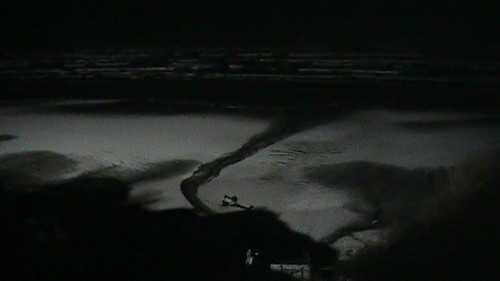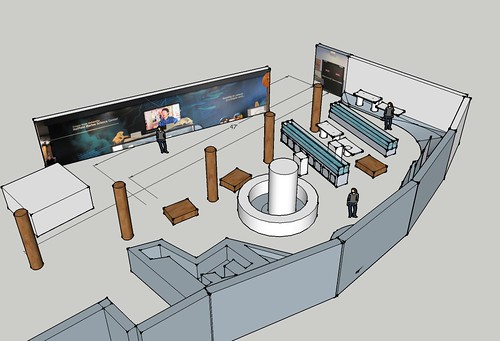Mark brought this project to my attention recently. I’m not sure I would call any of these methods “inconspicuous,” but Marilyn Manson and Lady Gaga might disagree with me on that point. However, I suppose fashion might evolve in the future to match the increasing prevalence of facial-recognition systems.
To the extent that this pertains to the Visitor Center, I expect that most people will find our simple opt-out measure preferable to an extra hour in front of the mirror. That may only be because our systems (which aren’t interested in your life outside the Visitor Center [sorry]) are currently the only ones likely to be encountered by a visitor on any given day here in Newport. That could change, and that extra hour might be worth it if you’re not confident in the benevolence or ownership of the eyes in the sky.
I’m interested in what develops from techniques like CV Dazzle, both in terms of facial-recognition systems and anonymity measures. If nothing else, the world will be more interesting to look at if this catches on. If avoiding surveillance becomes an avenue of personal expression, then are you truly seeking anonymity or just trying to avoid a particular kind of undesirable scrutiny?
Feel free to share your thoughts with us. We’ll wait for you to do your hair and makeup, if you’d like.



